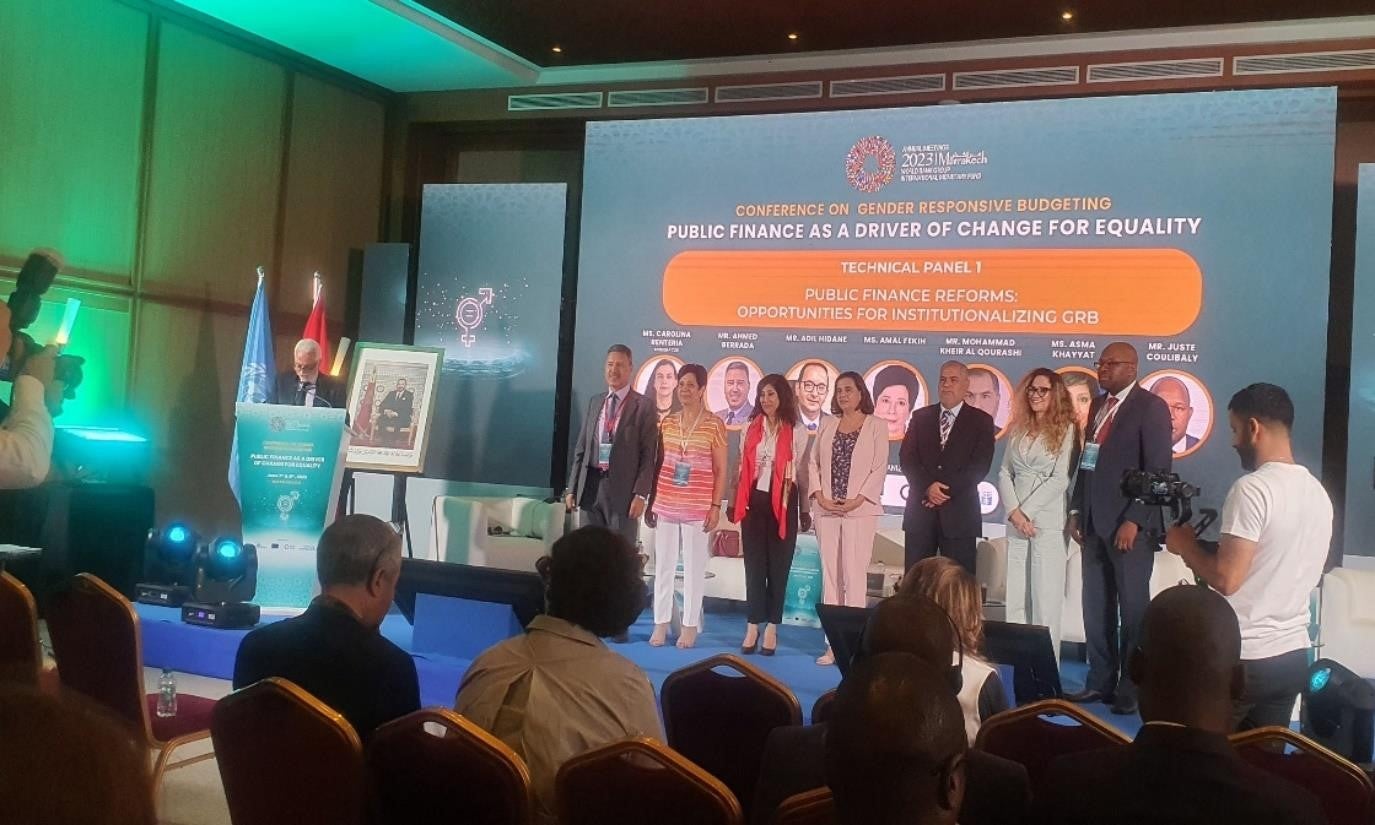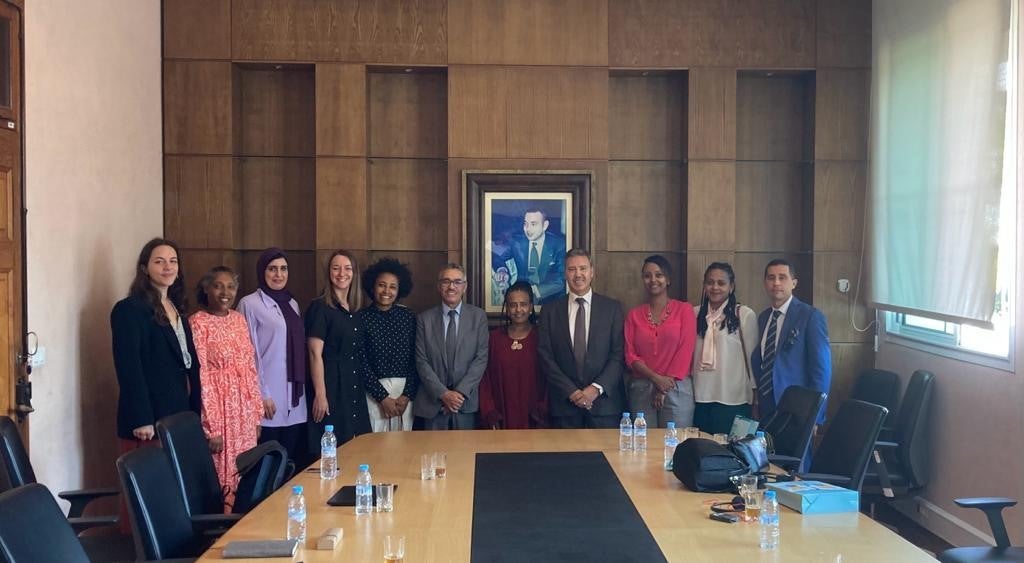UN Women and Partners are working to achieve a Gender Responsive Budgeting in Ethiopia’s Public Financing System
Date:

UN Women Ethiopia Country Office (ECO), as part of its 2021-2025 Strategic Plan sets out to address the root causes of gender inequalities and affect broader systems change, including by supporting financing for gender equality. In alignment with the global Strategic Plan, ECO is working towards ensuring a gender-responsive financing system within Ethiopia's public finance management system.
The ECO works to ensure new and existing internationally and nationally agreed commitments on GEWE are effectively financed in Ethiopia by enabling the government to establish a Gender Responsive National Planning and Budgeting system as an enabler to the desired gender progressive policies and laws and the comprehensive changes in stereotypes perpetuating gender inequalities.
As part of this activity, ECO supported delegates from the Ministry of Finance, the Ministry of Women and Social Affairs, and the Office of the Federal Audit General to take part in an experience-sharing visit to Morocco, recognizing Morocco’s notable advance in Gender Responsive Budgeting. The visit included meetings with various ministries and participation in a high-level Regional Conference on the 10th anniversary of the Centre of Excellence for Gender Responsive Budgeting of Morocco that took place 7-8 June in Marrakech and was organized by UN Women Morocco Country Office.
The main aim of the visit, which took place 7-13 June 2023, was to learn from the government of Morocco’s creation of an accountability mechanism, tools to track resource allocation and spending for Gender Equality and Women Empowerment, plan and budget from a gender perspective and gender-responsive performance audit.
The conference provided a platform for peer-to-peer learning between higher officials and experts within the Ministry of Finance, Ministry of Women and Social Affairs, and Office of the Federal Audit General to exchange good practices and lessons learned. The delegation also learned more by meeting with the experts of Morocco’s Ministries of Finance, Solidarity, Social Inclusion and Family (National Women’s Machinery), Urban Housing and City Policies on sector gender analyses, gender-responsive planning and budgeting as well as the General finance inspection on gender-sensitive performance audit, Ministry of Interior and inter-ministerial consultation network.

Reflecting on the experience gained from the visit, Ms Tifsehit Solomon- Gender Director at the Ministry of Finance said “I learned that commitment, collaboration, and partnership are key factors in the successful implementation of GRB. In our directorate, we will work towards institutionalizing GRB in all ministries, in collaboration with national and international organizations."
The delegation of experts learned from the visit how to address the challenges in Ethiopia to implement GRB including the lack of commitment from the higher officials is also one of the problems in institutionalizing GRB within the country. This creates a lack of accountability within sectors, an absence of strong accountability tools to monitor the implementation of GRB among sectors such as the Gender Budget Statement which is not yet institutionalized, and the absence of a well-established Gender Monitoring and Evaluation system in projects and programs towards gender equality among others.
The experts have also worked on an action plan for activities that help institutionalize GRB in the public finance sector and address the challenges mentioned.
UN Women Ethiopia implemented Phase I of the Transformative Financing for Gender Equality programme in Ethiopia (2017-2020), in partnership with the Ministry of Finance and other line Ministries. The evaluation of the Phase I programme highlighted that in the second phase of the project implementation, the programme will benefit from the South-South experience and knowledge sharing with countries such as Morocco and Uganda that have been proven quite advanced in the areas of Gender Responsible Budget as well as related institutional arrangement.